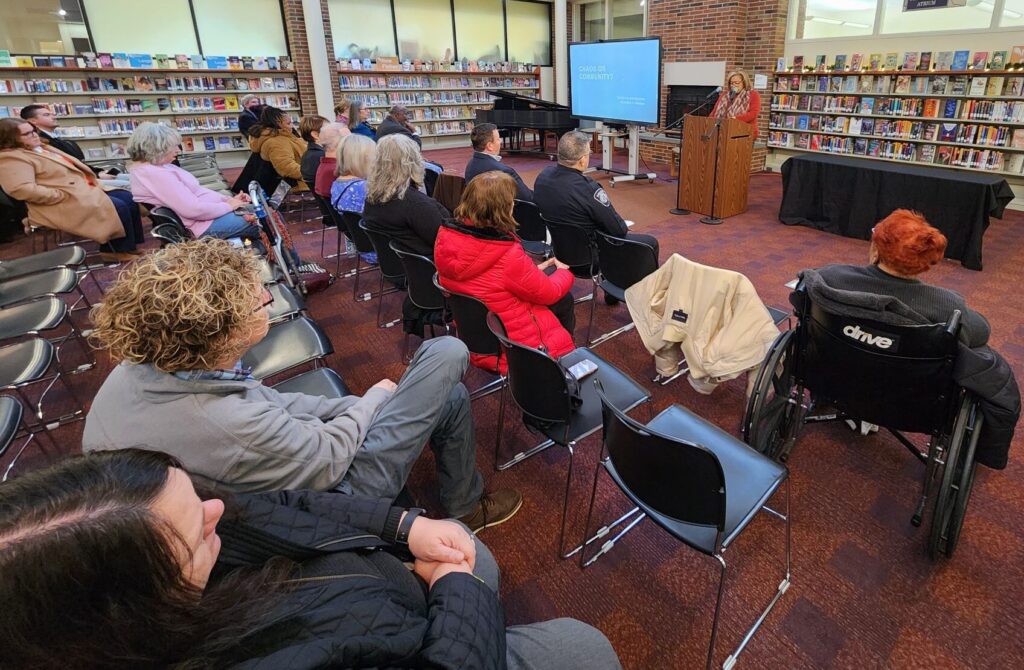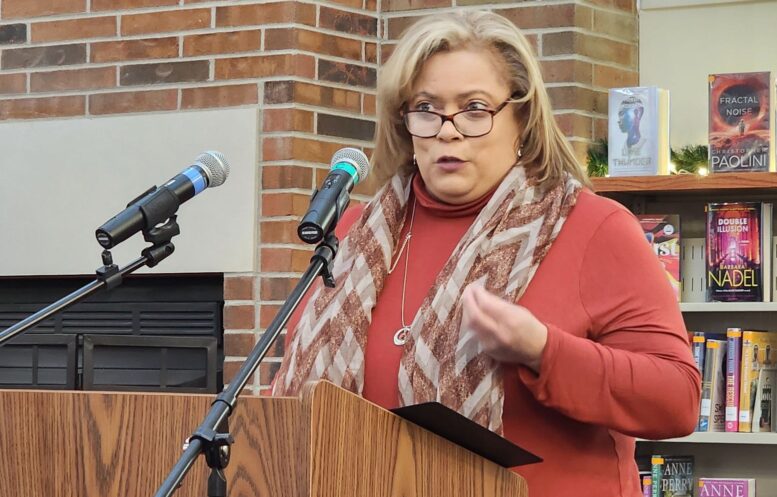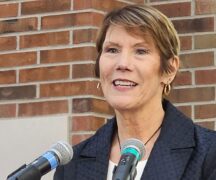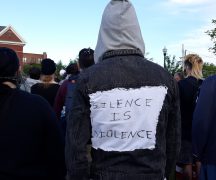By JAN McLAUGHLIN
BG Independent News
Rev. Martin Luther King, Jr., was not always a revered figure in the U.S.
Now celebrated for advancing civil rights, King was previously reviled during his lifetime and after being assassinated.
“He was despised by a large portion of the U.S.,” Ana Brown, keynote speaker at the 35th annual tribute to King in Bowling Green, said Friday afternoon.
A Gallup poll in 1966 revealed that 63% of Americans did not approve of King’s work for racial equity, believing him to be too radical. For more than a decade, he was monitored by the FBI and covertly discredited by the CIA, Brown said.
His criticisms of racism, poverty, education inequality and the Vietnam War were not received well by much of the nation.
“He held up the mirror to the face of the U.S., and most people did not like what they saw,” said Brown, who is deputy chief of Diversity, Belonging and Multicultural Affairs at Bowling Green State University.
But rather than address the flaws put in the spotlight by King, most Americans vilified the man leading the peaceful protests, Brown said.
That disrespect lingered, with several states resistant to recognizing the federal holiday dedicated to King in 1986. Among the last to acknowledge the holiday was Arizona, which did so only after the NFL refused to hold the Superbowl there in 1993 because of the state’s failure to honor King.
“I’m not going to deodorize the discourse,” Brown said, noting the need to be honest about America’s history of racism.
In the 56 years since King’s assassination, much has changed … and much has stayed the same, she said.
If a mirror was held up now, would Americans like what they see?
The U.S. is facing a different reckoning now, after the murders of George Floyd, Breonna Taylor and many others, Brown said.
And the nation remains divided over many of the issues of King’s time, and has created more divisions. There are attacks against Critical Race Theory, affirmative action, and “wokeness.”
“We still have so far to go,” Brown said. “This is still plaguing the U.S. nearly 60 years later.”
The country still fights its “schizophrenic personality” on race,” she said.
The wealth gap between white and black Americans is still wide, housing equity is still lacking, criminal sentencing is steeped in racial disparity, and educational opportunities are not equal.

Many Americans still have not learned one of the many lessons taught by King.
“When Black America prospers, all America prospers,” Brown said. “So how do we get there?”
Americans need to challenge continued racism, rather than rest in the comfort of the status quo.
“The nation is more polarized now than it has been for decades. We have to move from the poles and approach the middle,” she said.
And sometimes that means opposing sides must give grace to others that they want for themselves, Brown said.
“We have to find a way forward,” she said.
The annual tribute to King is sponsored by the Bowling Green Human Relations Commission. That organization’s goal is to promote a safe, open and welcoming community. The commission envisions a community that promotes an inclusive environment for people, especially those from diverse experiences who have been historically marginalized or left out of the conversation.
Brown has worked for 24 years to foster inclusive spaces in education. She is also involved in the community, serving on the Human Relations Commission, Not In Our Town in BG, and the Welcome BG Advisory Board.





